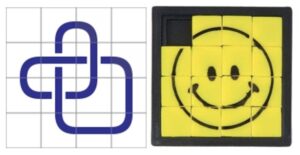
The Center for Learning and Teaching (CfLT) is excited to announce the first graduating cohort of the Denison Teaching Seminar (DTS). The cohort includes Leksa Lee from Global Commerce and East Asian Studies, Stacey Truex from Computer Science, Tim Attalah from Chemistry and Biochemistry, and Amanda Arnold from Health, Exercise, and Sport Studies. These four joined the DTS in the fall of 2021, pioneering this community of practice.









